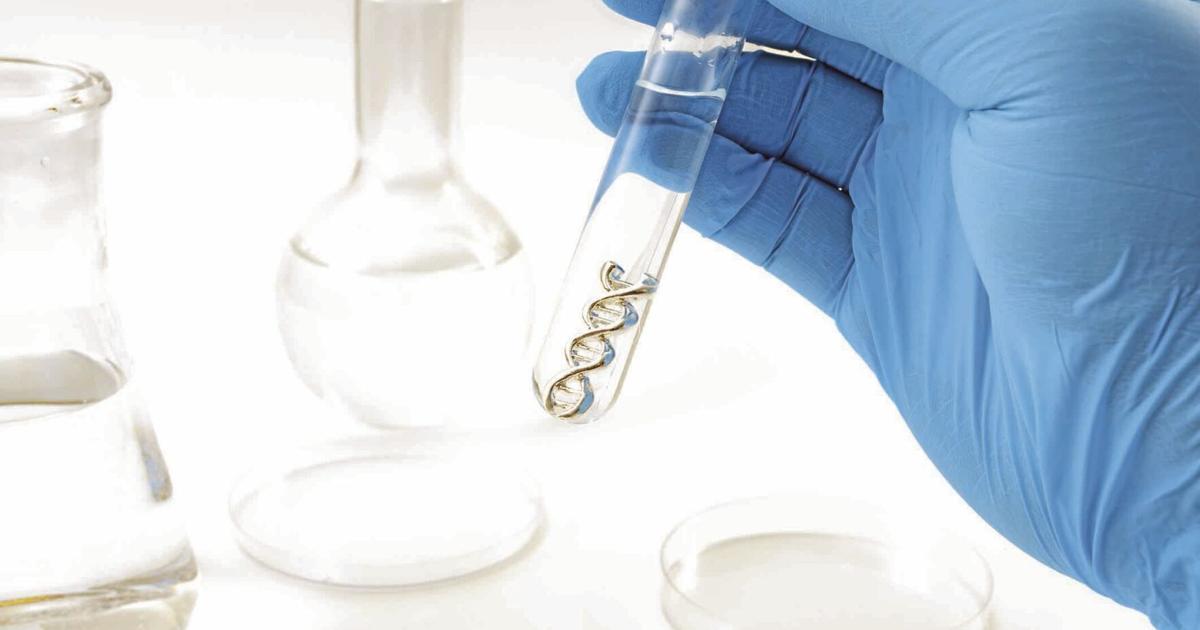What to know about your genetic testing options | Health, Medicine and Fitness

Robert H. Shmerling, MD, Harvard Health Publications
When it comes to health and disease – and, of course, many other aspects of life – one thing is certain: genes matter. A single genetic mutation can cause certain conditions, such as sickle cell anemia and cystic fibrosis. More often than not, multiple genes are implicated in disease development and act in concert with non-genetic factors, such as diet or exercise, to influence disease risk.
Several companies offer you the opportunity to look at your genes. But how could it help you from a health perspective? And how do these tests differ from the genetic tests that a doctor may recommend?
Genetic testing on the rise
Genetic testing was almost unheard of just a few decades ago. Now, you or someone you know has probably had a genetic test within the last couple of years.
And although health care providers can now order many more genetic tests for their patients than in the past, you don’t need a doctor’s order to request it. Companies like Ancestry.com and 23andMe are ready and willing to check your genes for variants associated with certain health conditions, as well as your family ancestry.
People also read…
In fact, spending on direct-to-consumer genetic testing is expected to reach $2.5 billion over the next few years.
Are all these tests useful?
For some people, the answer is clearly yes. When done accurately, genetic testing can reveal disease or a tendency to develop certain conditions, and it can also lead to close relatives being tested. Preventive measures or treatment can save life.
In the following four examples, knowing that you might develop a disease or are a carrier can help guide medical care and can inform life decisions or encourage you or other family members to consider genetic counseling.
- Hemochromatosis: It is a genetic disease in which too much iron is absorbed from food. The extra iron can damage important organs like the heart and liver. Once a person is diagnosed, having a phlebotomy (drawing blood, similar to what happens when donating blood) and avoiding iron supplements can prevent serious complications such as diabetes and liver failure.
- Prenatal screening: For people who are planning a pregnancy or are already pregnant, genetic tests are available to check for a large number of conditions, such as cystic fibrosis and Down syndrome.
- Cancer: A number of genes are known to increase the risk of certain cancers. The tests may be especially important for people with a family history of these cancers. Perhaps the best known are BRCA mutations, which increase the risk of breast, ovarian and several other types of cancer.
- People who do not know their family’s medical history: For example, a person who has been adopted and has no information about their family’s medical problems may learn that they are at increased risk of contracting a preventable disease, such as heart disease or colon cancer.
But the answer can also be no. Genetic test results can provide information you already know, can be misleading or even upsetting.
For example, learning that you are at increased risk of developing Alzheimer’s disease later in life may be more upsetting than helpful, as there is currently no effective and reliable preventive treatment.
What about the costs of genetic testing?
Genetic testing may have more than one type of cost. A doctor-ordered genetic test may be covered by your health insurance, but an over-the-counter test is unlikely to be. And, as one company states on its website, “knowledge of genetic risks could affect your ability to obtain certain types of insurance.”
Not all genetic tests are exhaustive
A 2021 study on screening for a genetic cholesterol disorder, published in the medical journal JAMA Cardiology, demonstrates how misleading direct-to-consumer testing can be.
Researchers looked at genetic testing for familial hypercholesterolemia (FH), a disease caused by complex genetic variants that dramatically increases the risk of heart attack, stroke and other health problems. The researchers compared results from a doctor-ordered full-panel test (which included more than 2,000 gene variants) with direct-to-consumer genetic test results (24 variants) provided by 23andMe.
Among more than 4,500 people tested for a medical reason, such as finding unexpectedly high cholesterol, the most limited tests would have missed important genetic variants for:
- nearly 70% of study participants
- almost 94% of blacks and 85% of Hispanics
- approximately one-third of individual Ashkenazi Jews
This suggests that many people would be falsely reassured by their genetic test results for FH if they relied on the type of screening offered by a popular over-the-counter product.
And the results can be particularly unreliable in people of color.
The bottom line
You can’t choose your genes, but thanks to an ever-expanding menu of options, you can choose your tests.
In many cases, it is best to review your decision to undergo genetic testing with your doctor before doing so.
You may choose to consult a genetic counselor about the ramifications of testing before you start and let your doctor do the test, rather than ordering it yourself.